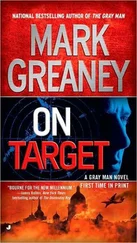After everyone looked again, Chavez and Ryan agreed with Driscoll, and Clark gave in to majority rule. “Okay, ‘skala.’ Sounds like a proper name. Central European, maybe?”
Ryan was already at his laptop Googling the word while Adara Sherman refilled his bone-china coffee cup next to him. With excitement he said, “Got it! It’s a town in Poland.” Then, with a voice less enthusiastic, “Wait. It’s also a town in Bulgaria. Shit. There’s one in Ukraine, too. Another in the Faroe Islands.”
Driscoll mumbled, “Well, damn. That’s not very helpful.”
Chavez said, “It might be a person as well. I knew a Hungarian Army captain with that surname, back in CIA. He died in a helo crash fifteen years ago, though. Clark, you know anybody named Skala?”
Clark shook his head. He was concentrating on the next word now. “What’s that? Four letters? Looks like ‘IATA.’ All caps.”
Ryan Googled that as well. “International Air Transport Association. Might just be a coincidence.”
Sherman was pouring orange juice for Chavez. She hadn’t said a word during the conversation, because no one had asked her opinion. But she glanced at the page and said, “Prague.”
The four men turned to look up at her, so she clarified. “Sorry. It’s the ICAO airport code. That’s Václav Havel in Prague. Czech Republic.”
Ding said, “I thought the Prague airport code was PRG.”
Sherman smiled. “You are thinking of the IATA code that’s used commercially, what you see on your ticket or when you book a flight. The ICAO is what pilots use.”
Ding looked at her doubtfully, but Clark buttressed her claim.
“Hazelton was a pilot. He was ex–Air Force and held a multi-engine private pilot’s license.”
Ryan said, “Skala could be a Czech name. Maybe if we go to Václav Havel Airport in Prague and start looking around for a guy named Skala, we will get lucky.”
Clark said, “For now we are heading back to D.C. The first item on our agenda after returning is to sit down with a certain someone and find out everything she knows about this. After that we’ll decide how we are going to proceed.”
Clark held the note close to his face to look at the last scribble, down at the bottom of the page. After a few seconds he nodded, then tossed it on the table. “Hazelton’s last note tells us there is trouble ahead, boys.”
The others looked the note over. It was clear to all of them.
DPRK.
Sam took the words out of the others’ mouths. “I hate those guys.”
The Gulfstream flew northeast toward the dawn, the four men in back trying to catch as much sleep as possible because to a man they expected the events of the previous evening were merely the beginning, and more trouble lay ahead.
6
One year earlier
For as many of the twenty-eight years Choi Ji-hoon could remember, he had been surrounded by those who told him he would someday lead his nation. Most of those people were sycophants, though he’d never heard such a term. He knew these people only as unimportant. Still, he believed them. He believed them because his father, the only person who mattered, had told him the same thing. Choi Li-hung explained to his son, Choi Ji-hoon, that someday he would die, and when that happened, young Ji-hoon would replace him to become the Supreme Leader of North Korea.
Ji-hoon’s father promised his son he would rule, but he did not reveal to his son that he had absolutely no faith in his ability to do so. Choi the father thought his son to be weak and lazy and not exceptionally smart, and he considered him the biggest sycophant of all. By the age of twenty-two, young Ji-hoon had become a party official, and his one duty involved traveling around North Korea commissioning works of art to commemorate historical events in the nation. Ji-hoon turned this job into a vehicle by which he could suck up to his father. Every single painting and statue Ji-hoon ordered created was of Choi Li-hung, a blatant way to curry favor and earn his succession.
But Choi the father felt he had no choice. He did not want to bequeath his nation to one of his brothers; they all had sons of their own and Li-hung refused to allow his nephews to lead the DPRK for the cynical reason that by doing so he would decrease his own legacy to future generations. His other children were all daughters, and it was out of the question a woman would lead North Korea.
This left succession to Choi Ji-hoon. The weak and lazy one was the only heir suitable to reign over the nation. He knew his son would not be a good steward of the DPRK, but in the end continuing the authority of the bloodline, and therefore his own immortality, was more important to Choi Li-hung than the lives of the twenty-five million citizens under his rule.
Choi Li-hung did little to prepare his country for his son’s reign. His one nod to his son’s incompetence was his insistence that Ji-hoon take power with six of Li-hung’s advisers as his personal council. These men had been with Li-hung throughout his twenty-year rule; one of them, his foreign minister, was a brother. Li-hung knew putting remnants of his regime in his son’s administration was no substitute for a competent Supreme Leader, but he thought it might save the nation from the utter destruction Ji-hoon might cause on his own.
And then it happened. When Choi Ji-hoon was twenty-seven years old his father died, and he became the Supreme Leader of North Korea. At first his six advisers effectively ruled while Ji-hoon reveled in his newfound power—power brought on not only by his job title, but by the fact his father was no longer around to scrutinize his every move. Ji-hoon spent money even more lavishly than he had before; new statues and paintings all bore his own face now, he commissioned parks and sports stadiums and monuments in his name, and he smuggled in luxury goods by the shipload, even while famine raged across the rural reaches of the DPRK.
But Choi Ji-hoon changed in the months after his ascendency. He grew less interested in debauchery and more consumed by a paranoia brought on by all the attention on him. On the one-year anniversary of his father’s death, Choi Ji-hoon decided he needed to assert his own authority, to exert more control over all matters of state.
Nothing to him was more important than his relationship with the military, because they held the key to his survival. While his father had been called “Dear Leader” by his subjects, Choi Ji-hoon demanded to be called Dae Wonsu, or grand marshal, signifying him as the commander of all armed forces in the nation. Although he’d spent no time in the military other than a four-week “white-glove” program for the sons of party leaders, his biography was quickly rewritten, claiming him to be a bomber pilot who’d safely crash-landed a crippled aircraft on a highway to save his crew, and a Special Forces paratrooper who had led thirty-three covert missions into South Korea to rescue North Koreans kidnapped and sold into slavery in the South.
These exploits were taught in schools, songs were written about the events, and television and radio documentaries featured interviews with his supposed fellow soldiers and airmen.
That every bit of the Dae Wonsu’s military history was bullshit was never uttered by anyone who knew the facts, because those who knew the facts also knew that the fiction was more important than the facts, and maintaining the fiction would be done at the expense of the lives of anyone who disputed it.
Ji-hoon’s father had been no dove—hardly. Li-hung had killed tens of thousands of his own countrymen through executions and imposed famine, and he brought the Korean Peninsula to the brink of war multiple times by firing artillery on South Korea. But Choi Ji-hoon distinguished himself by becoming even more hawkish. He pushed for the purchase and development of new weapons systems and he ordered provocative training operations on the border. He test-fired missiles that flew over the sovereign territory of his neighbors and his Korean Central Television station broadcast threats to South Korea, the United States, and Japan on a near-daily basis.
Читать дальше












